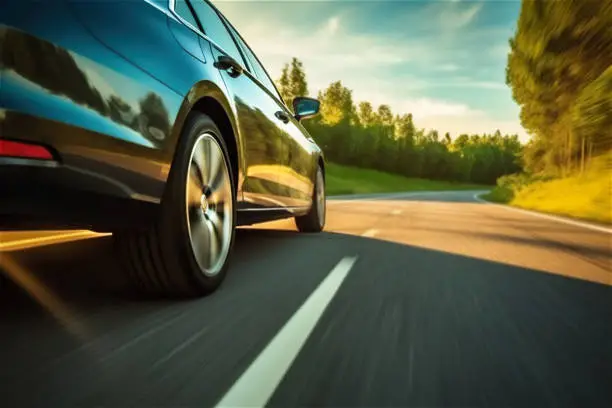Accidents, even minor ones, can be a stressful and unsettling experience, especially in a bustling city like Toronto. Knowing what steps to take immediately after a minor car accident can help prevent further complications and ensure your safety, as well as the safety of others. In this article, we will outline the necessary actions to take after a minor car accident in Toronto, helping you navigate the situation calmly and effectively.
Ensure Safety First
The first priority after any car accident is to ensure the safety of everyone involved. Check for injuries, no matter how minor they might seem, and make sure to move yourself and others to a safe location if possible. If the vehicles are causing an obstruction or are in a dangerous position, carefully move them to the side of the road to avoid further accidents. In cases where it is unsafe to move the vehicles, it is best to leave them in place and turn on hazard lights to alert other drivers.
Contact Emergency Services
Even if the accident appears to be minor, it is always a good idea to contact emergency services. In Toronto, dialing 911 will connect you with both medical and police assistance. While minor accidents may not always require an ambulance, you still want to ensure that all parties are uninjured and that the authorities are aware of the situation.
File a Police Report
In Toronto, you are required to file a police report for any accident that results in injuries, fatalities, or damages exceeding $2,000. Even if the damages are minimal, it’s important to report the accident to the Toronto Police to ensure that the proper documentation is in place. The police will provide you with an accident report, which you will need to submit to your insurance company.
Document the Scene
After ensuring the safety of all involved, your next step should be to document the accident scene. This is crucial for insurance purposes and can help determine liability. Here are some important steps to follow:
- Take photographs of the accident scene, including the damage to all vehicles involved, the location of the accident, and any skid marks or road conditions that may have contributed.
- Exchange contact information with the other driver(s) involved. This should include their name, address, phone number, driver’s license number, and insurance details.
- Gather witness statements if there are any bystanders who witnessed the accident. Be sure to collect their contact information as well.
Use Your Smartphone for Documentation
Most people carry a smartphone, which is a useful tool for documenting an accident. Take clear photos from different angles to show the extent of the damage to both vehicles. Additionally, you may want to record a brief video of the scene, narrating what happened while it is fresh in your mind. This visual and audio documentation can be very helpful during the insurance claims process.
Exchange Information with the Other Driver
One of the most important steps after a minor car accident is to exchange information with the other driver. This includes the following:
- Full name and contact information
- Driver’s license number
- Vehicle registration details
- Insurance company and policy number
Important Notes for Exchanging Information
Make sure to remain calm and polite during this interaction. Avoid admitting fault, even if you believe you may have contributed to the accident. Fault determination is handled by insurance companies based on the information provided.
Seek Medical Attention
Even if you don’t feel hurt immediately after the accident, it’s still advisable to seek medical attention. Minor injuries, like whiplash, can develop hours or even days after the accident. A doctor’s evaluation can help detect any hidden injuries and will provide important medical documentation should you need to file a claim later.
Notify Your Insurance Company
Once you’ve handled the immediate aftermath of the accident, you’ll need to contact your insurance company. Provide them with all the necessary details, including the accident report, photos, and the information exchanged with the other driver. Be as thorough as possible to ensure that your insurance company has all the facts they need to process your claim quickly.
Understanding Ontario’s No-Fault Insurance
Ontario operates under a no-fault insurance system, meaning your own insurance company will handle your claim, regardless of who was at fault for the accident. This system is designed to speed up the claims process and reduce disputes between drivers.
Visit a Collision Reporting Centre
For minor accidents in Toronto where police are not required at the scene, you may need to visit a Collision Reporting Centre (CRC). Toronto has several CRCs where drivers can file accident reports, take photographs, and submit their information. This is typically required within 24 hours of the accident.
When to Go to a CRC
If no one is injured and the total damages are below $2,000, you can proceed directly to a Collision Reporting Centre. However, if you are unsure of the total cost of the damages, it’s always best to consult with the police or your insurance company.
Follow Up with Your Insurance Adjuster
After the initial report is filed, an insurance adjuster will likely contact you to gather more information. Be prepared to answer questions about the accident and provide any additional documentation they may require. Cooperate fully with the adjuster to ensure a smooth claims process.
Handling Repair Estimates
Your insurance company will often recommend a list of approved repair shops to handle any vehicle damage. Be sure to get an estimate for repairs, and keep in contact with your insurance adjuster for updates on the claim status. Some insurance policies may offer a rental car while your vehicle is being repaired.
Keep a Record of All Expenses
It’s important to keep track of all expenses related to the accident, including medical bills, repair costs, and any lost wages if you are unable to work due to injuries. This documentation will be useful when filing your insurance claim and ensuring that you are fully compensated.
Stay Calm and Seek Legal Advice if Necessary
Lastly, it’s essential to stay calm throughout the process. Accidents can be stressful, but knowing the correct steps to take can alleviate much of the anxiety. If there are any disputes or complications with the insurance process, you may want to seek legal advice from a qualified attorney who specializes in personal injury or insurance claims.










